Catalonia Food & Wine, Sustainable Tourism
From orchard to plate: Catalonia’s journey towards sustainable gastronomy
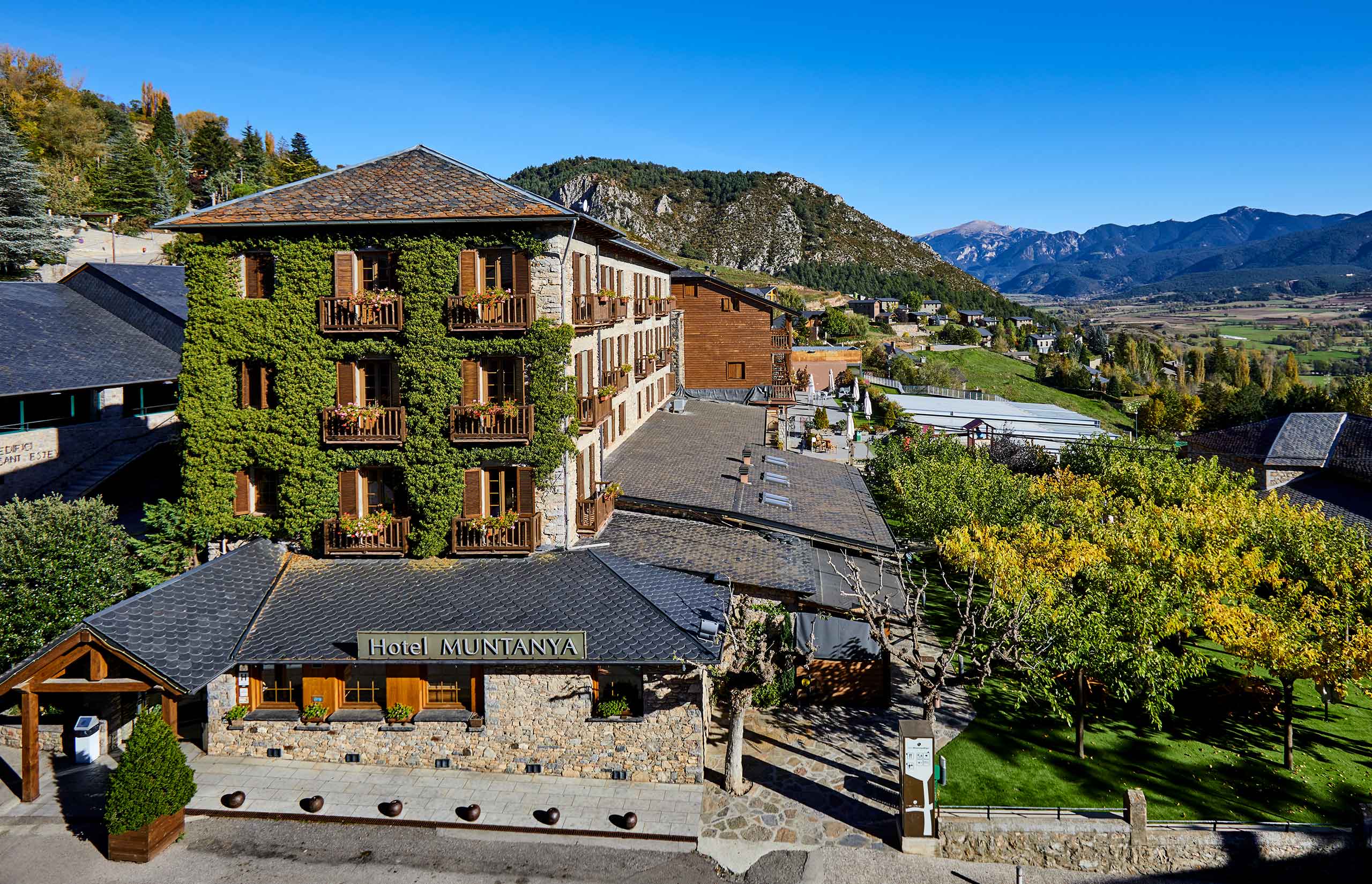
Hotel with view of Cerdanya at northern Catalonia, border to France
In Spain’s northeast, chefs and hoteliers are cultivating a dining culture where sustainability tastes as good as it feels
Catalonia’s landscape unfolds like a dream kitchen. Olive groves stretch across the plains, vineyards climb the slopes, wild herbs lace the forests and the Mediterranean, with its many spoils, laps at the region’s eastern edge. Both inspiration and ingredients are taken from Catalonia’s dramatic landscape, from the snowcapped Pyrenees to the golden Mediterranean coast and everything in between. This natural abundance has long underpinned Catalan cooking, yet a new generation of hospitality folk is treating local ingredients with deeper care and curiosity.
The ethos aligns with Catalonia’s recognition as World Region of Gastronomy 2025, a title that celebrates both the region’s rich culinary heritage and its commitment to sustainable practices.
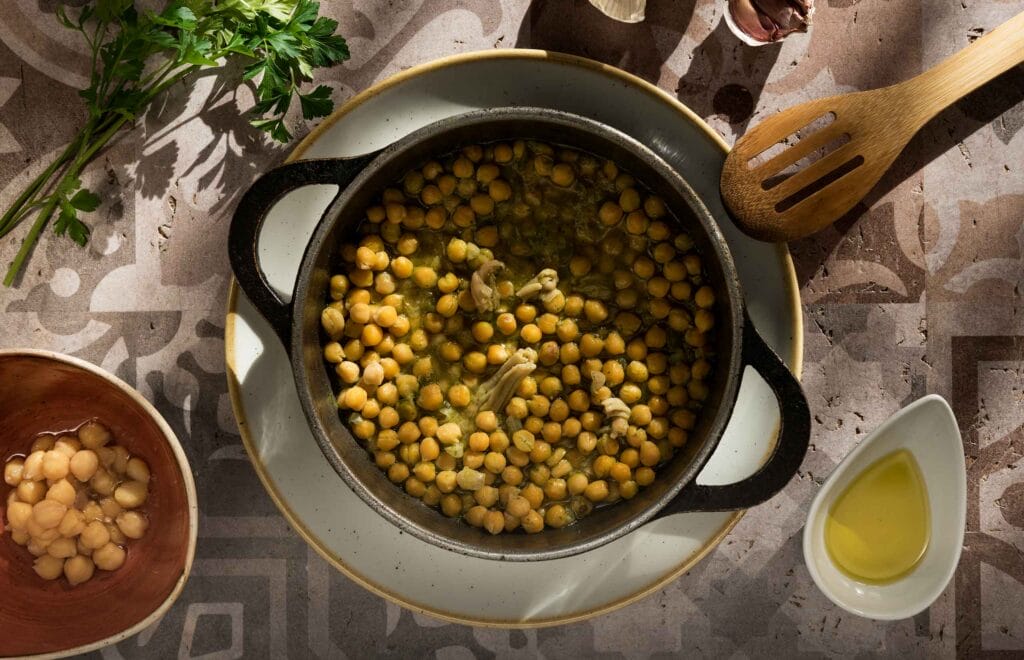
Located in Spain’s northeast corner, Catalonia has one of the world’s most celebrated cuisines: 77 Michelin stars are shared among 62 of its restaurants while three establishments (Disfrutar, El Celler de Can Roca and the now legendary elBulli) have all claimed the coveted top spot in The World’s 50 Best Restaurant list.
The region is also a major agri-food hub, home to 12 Protected Designations of Origin (PDO), 13 Protected Geographical Indications (PGI) and 12 Designations of Origin (DO) for wines.
While cuisine here has always been tied to the land and sea, the past decade has seen a deliberate shift toward organic farming, low-impact production and closer collaboration between producers and chefs.
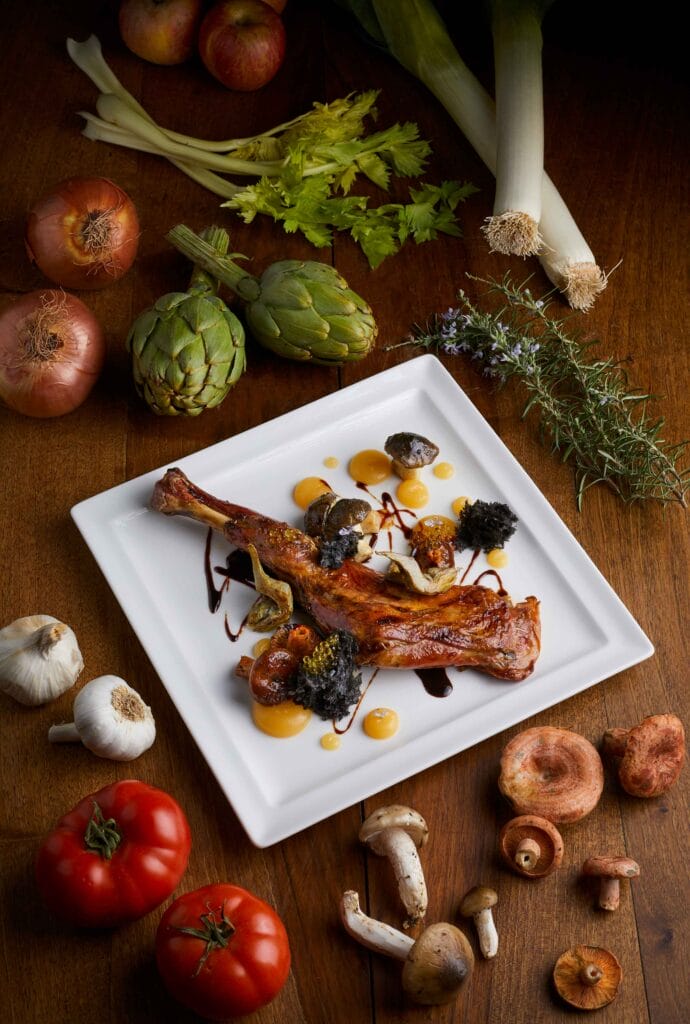
Culinary trailblazers
Catalonia is home to incredible culinary star power. When launching its global campaign for the World Region of Gastronomy distinction, the region was represented by more than 100 Michelin-starred chefs, plus farmers, fishers and proud hospitality doyennes.
Visionary chef Joan Roca was the campaign’s official ambassador, embodying Catalonia’s inimitable blend of culinary excellence and sustainability. Alongside his brothers Josep (the sommelier) and Jordi (pastry chef), Joan helms El Celler de Can Roca, a critically acclaimed restaurant in Girona, about 100 clicks north of Barcelona.
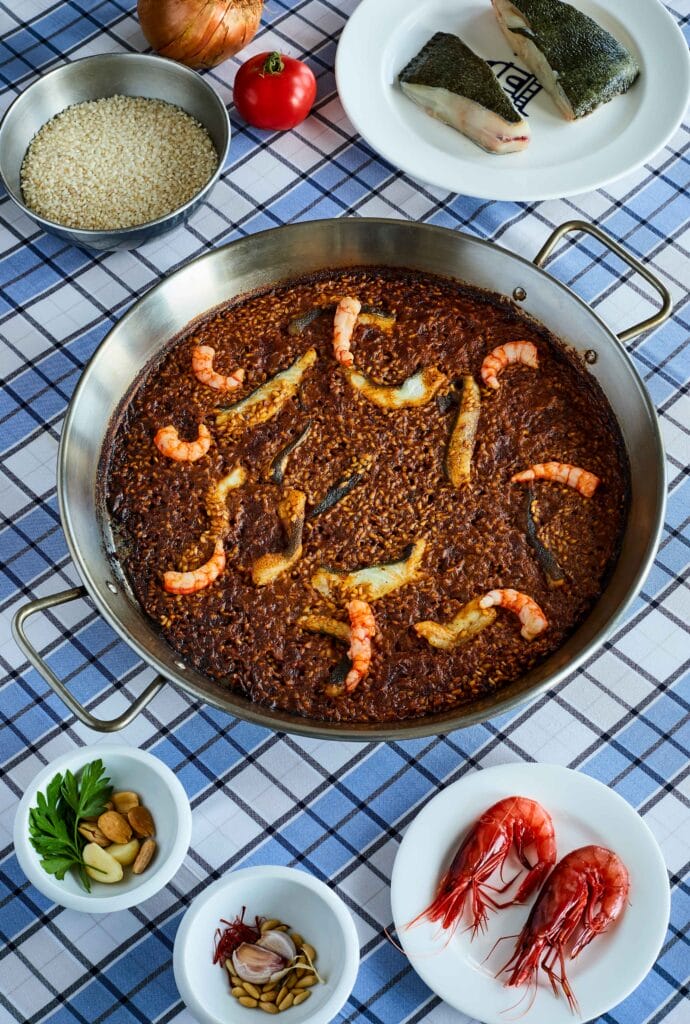
El Celler de Can Roca is a benchmark of sustainable gastronomy, proving that Michelin-starred innovation can go hand in hand with ethical sourcing, local stewardship and a commitment to preserving both nature and culinary heritage.
The brothers’ influence extends beyond the kitchen: in 2016, the trio were appointed United Nations Development Programme Goodwill Ambassadors, helping generate support for the UN’s Sustainable Development Goals.
The family’s ethos also thrives in initiatives such as Roca Recicla, the brand’s zero-waste program, which creatively repurposes common restaurant materials such as empty glass bottles and food storage boxes, and Sowing the Future, a project aimed at recovering botanical species.
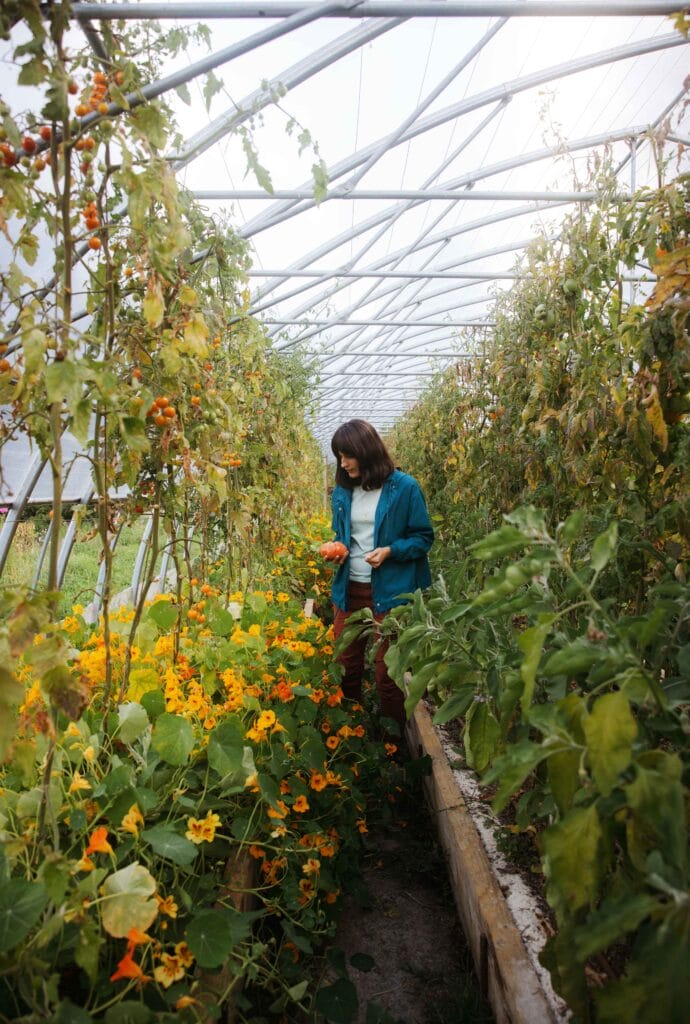
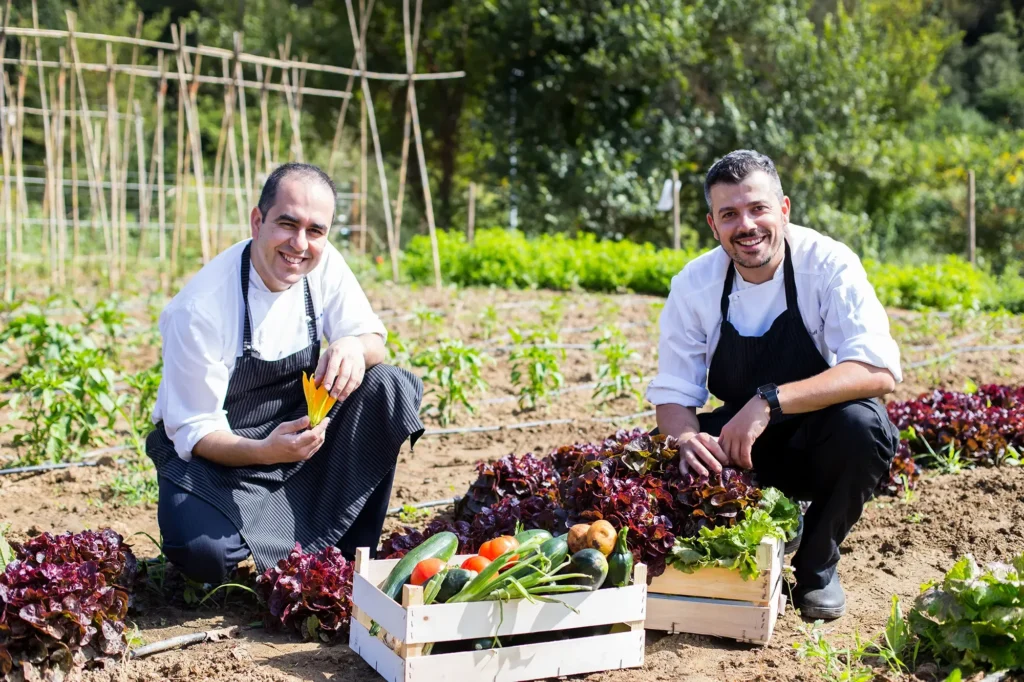
Greener pastures
A little closer to Barcelona, near the ancient village of Vallromanes, Mas Salagros Eco Resort is another pioneer of sustainable gastronomy. Tucked inside a nature reserve and with views of the protected Parc de la Serralada Litoral, the purpose-built property is the first 100 per cent eco-friendly resort on the peninsula, using renewable energy from biomass boilers and solar panels, natural building materials and an ambitious waste-management plan.
‘We cook with what the land gives, when the land gives it’, is the resort’s food philosophy, which plays out at on-site restaurants 1497 and Cibus.
Both serve ecological Mediterranean cuisine, starring certified organic ingredients, many of which are grown on the resort’s own land or sourced from nearby farms. The wine list, meanwhile, is flowing with organic, vegan and biodynamic wines.
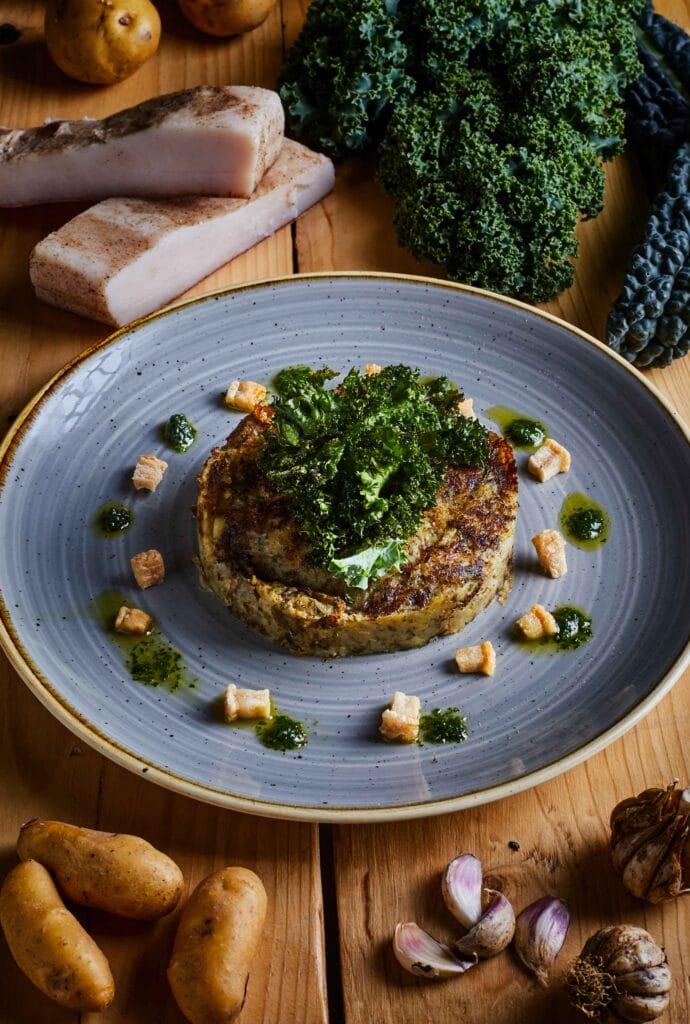
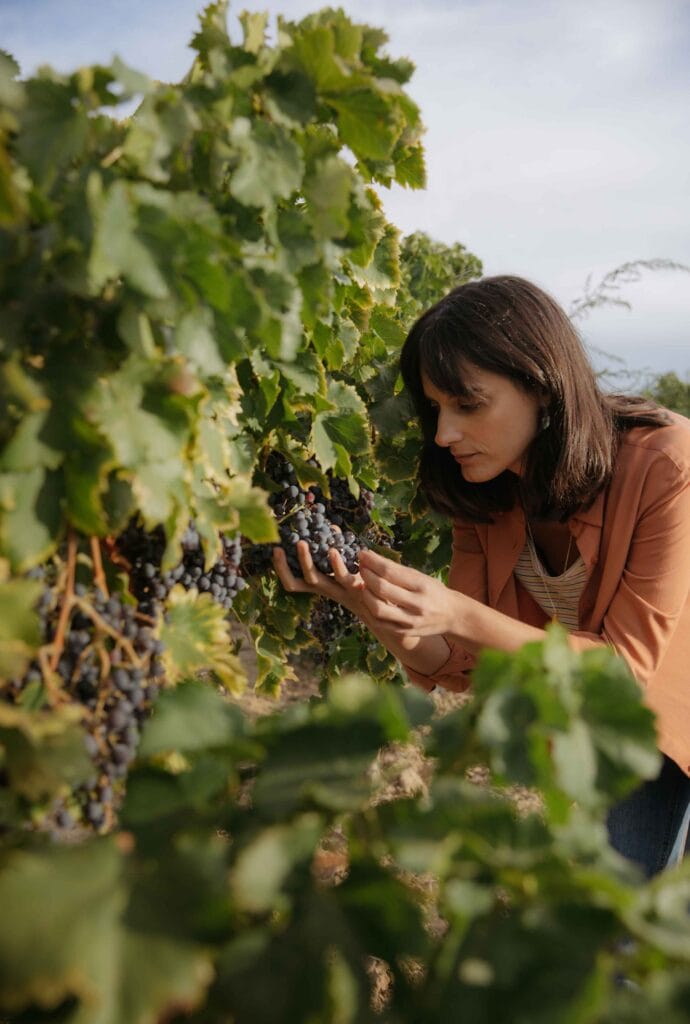
Urban tables
In Barcelona, the Catalan capital, Lluerna proves that sustainability isn’t confined to rural locations. The inner-city restaurant hums with happy patrons, dining on the best organic and seasonal ingredients, cooked to hero Catalonia’s rich flavours and even richer traditions.
You will find Lluerna on a long list of restaurants that have obtained the Barcelona Sustainable Gastronomy Quality Seal, an initiative aimed at positioning the city as a world leader in this space.
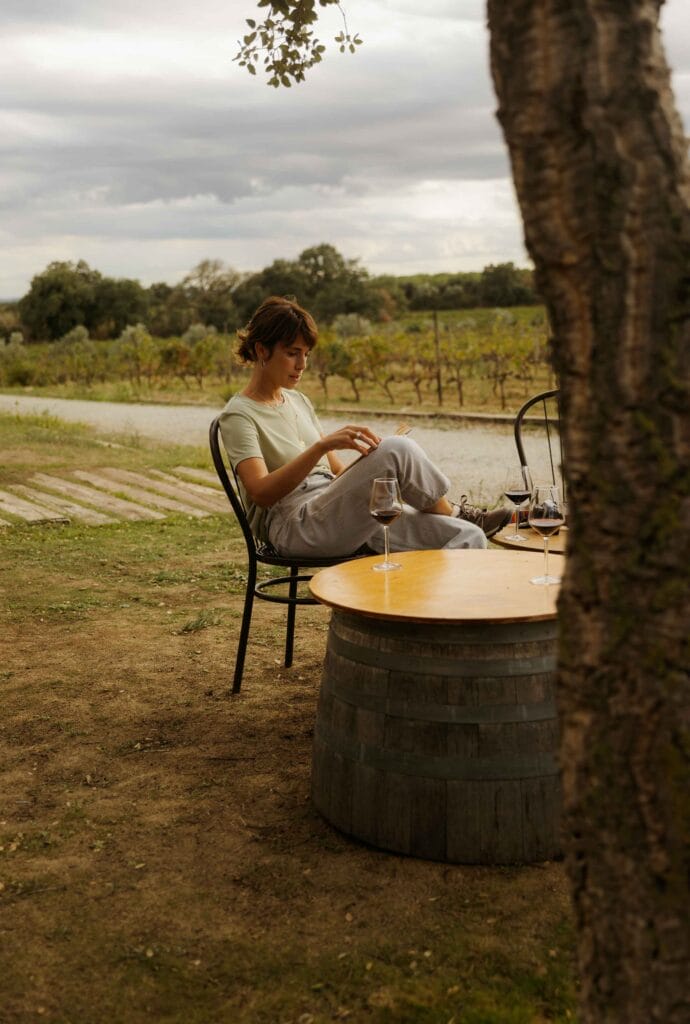
The certification process evaluates restaurants across 12 key areas, including social responsibility, resource conservation, accessibility, and carbon footprint reduction. These criteria ensure that participating establishments not only serve exceptional cuisine but also contribute positively to their communities and the environment.
Catalonia’s gastronomic evolution is more than the sum of its dining rooms. Government initiatives and regional collaborations are helping knit sustainability into the broader tourism landscape.
Programs under the World Region of Gastronomy 2025 banner are connecting local producers, chefs and hoteliers, ensuring that the environmental, social and cultural threads of Catalan cuisine stay strong and proving that good food and good stewardship belong at the same table.
Latest Articles
Don't miss the latest from Luxury Travel
